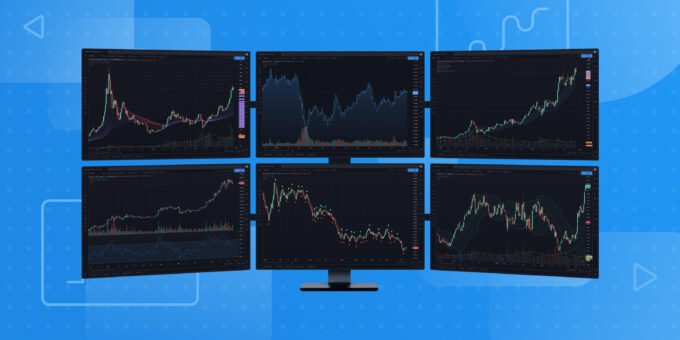Fish farming business Fish farms operate to raise fish for commercial or residential sales. Fish Farming and associated industries have expanded through the 1980s and ’90s. The fish market is expanding rapidly because fish are highly nutritious, low in fat and calories, and may reduce heart disease incidence, as suggested by recent research.
Different kinds of fish can be raised in controlled environments, from table fare to exotic tropical species.
Fish farming business
Today, the modern farm practice has made it possible to grow fish in the farms and control the input. If you are thinking of a business to start now, I recommend you start Fish farming. If you are an existing farmer and are looking to expand your farm capacity, I’d encourage you to add fish farming to your business line.
Learn how to start your own Fish Farm and whether it is the right fit for you
Types of Fish You Can Farm
Firstly you need to decide which species of fish you want to farm. Below are some of the most popular fish species that are suitable for Aquaculture.
1. Cat Fish –
Even though Catfish is not the most popular fish, this fish species is the most cultivated, especially in Nigeria. One thing good about catfish is that it is one of the easiest fish species to cultivate. So, people naturally flow in the direction of fish species they found to be the easiest to cultivate.
2. Tilapia –

The second most popular fish in the aquaculture industry, Tilapia, is a fish species that lives in fresh shallow water. Tilapia is very easy to cultivate and very popular in the African market; it reproduces very rapidly and grows fast too.
3. Mackerel (Titus) –
All Mackerel Fish is “wild-caught,” but some farmers are considering the possibility of creating artificial salty water that will be similar to seawater where mackerel can only survive. Can this deep blue sea fish species be cultivated artificially?
Fish farming business
Whether you’re thinking of a small-scale fish farm or a large commercial fish business, the following are the basic things you’ll need to start your fish farming business.
1. Secure a Land. Any location is good since fish doesn’t cause any environmental disturbance. Look for a land where you can get it cheap and buy. Depending on the capacity you want to operate on, half the land plot is just good enough for an average fish farm.
However, you may go for something bigger like a full plot or two if you can afford it, probably for convenience’s sake. If you already have a compound with leftover space you think can accommodate two or three ponds, you can use it.
- Fish Pond. This could be concrete, earthen, or tank of different sizes (depending on the quantity of fish you want to farm). You can engage the service of an expert pond construction engineer or go to another fish farm to get the specification and construction requirements. The plumbing work must be properly done to ensure proper drainage.
- Good & ConstantWater. Though water could be a gift of nature, you may have to spend money to dig a borehole. There’s what we call “water quality” in the fish business, and it simply means you must have good and reliable water for your fish.
Also, adequate water supply is the lifeblood of fish farms, and lack of it may result in disaster because water needs to be changed regularly. Rainwater and tap water from the chemically treated source is not recommended for fish cultivation.
4. Get Juvenile Fish
Get your juvenile from another farm that specializes in supplying it. You need to go for the high-yield species of catfish or tilapia and make sure you are getting it from a healthy farm.
- Fish feed. Your fish will eat different kinds of feed at different stages of their lives. While there are many makers of fish feed, we generally use MM to indicate their sizes.
- FishNet. This is used for harvesting fish.
- Labour. You may not need labor if you’re starting a small-scale fish farm, but you’ll need some labor if you’re going on a large commercial scale.
8. Get Training
Not the kind of training you get from one-day seminars; you need to get attached to a fish farm for a proper apprenticeship. For you to properly learn this trade, you need at least two months of training on this.
Remember that your investment is at stake. Trial and error are not good in business except you have unlimited funds to experiment with.
Risks and Challenges in Fish Farming
1. Sensitive to Manage
Fish is susceptible to management, and a slight mistake could result in your fish’s degenerated growth or even death, which may cause massive revenue loss.
2. Capital Intensive
Setting up a fish farm is capital intensive, much more than that of poultry and snail farming. Setting up a fish farm requires more careful planning and much capital input. A relatively small fish farm may take up to $1,000 to $1,500 to set up, while bigger ones take millions of naira.
3. Fish is Priced High
Due to the production cost, fish produced from the farm is priced higher than those caught from the rivers and ponds by fishermen. Therefore, if there are good quantities of fishermen’s fish in the market, you may find it difficult to sell as people prefer cheaper ones.
4. No Byproduct
Unlike poultry, there is no byproduct in fishery, where even the drop can be harvested and sold to other farmers and make extra profit. In a fishery, all you get is the fish.
What are the costs involved in opening a fish farm?
Fish ponds are of various sizes, and their cost varies, depending on your environment size and scope of the operation you are starting.
If you are starting an aquarium-based farm, you will need:
- Tanks and pumps
- Fish food and refrigerators
- Water aerators
- Water testing kits and equipment
- An investment in the initial parent fish or eggs/Frye
If you are running at a commercial fish farm, you will need:
- Land for ponds
- Equipment for excavating ponds
- Commercial-sized pumps, aerators, and water sources/reclamation devices
- Boat, motor, and equipment for cleaning and managing the pond.
- Industrial fish food supply
- Fish processing equipment for shipping and exporting
What are the ongoing expenses for a fish farm?
Fish farming will have some variation in expenses, depending on what kind of fish and how many you are raising. Average associated costs will stem from:
- Buying eggs and/or fingerlings for your re-stock purposes.
- Food and maintenance of the fish.
- Replacing pumps and oxygen/aeration systems.
- Digging new ponds or buying additional tanks.
- Electricity per month.
- Plumbing maintenance.
- Insurance for employees and the business.
- Transporting/shipping of fish in and out of your farm.
Who is the target market?
Customer types will vary, depending on the types of fish you are raising. If you are raising fish for sport, re-stocking, or commercial food products, your base will consist of larger businesses, which need a higher volume of fish. Some customers may even consist of state or federal organizations who re-stock depleted natural resources.
If you raise fish for aquariums or as pets, your customer group will be pet shops and specialty fish dealers. You may even choose to have customers contact you directly to expedite sales and cut the middle man’s cost.
How Profitable is Fish Farming?
Since business is about watching the market trend and taking advantages, it will be good to understand the commercial trend of this agribusiness (business of agriculture)
The world at large is becoming aware of the nutritional value of fish.
When you notice the sensitization about how fish is the good source of omega_3, Vitamin D, Vitamin B2 (even though laypeople may not know what all that means, they trust their medical practitioners and then eat more fish)
More and more people are abandoning red meat (because we`re told it`s bad) and embracing fish.
This is the reason why world aquaculture (farming of aquatic organisms) remains a fast-growing sector, yielding nearly 60 million metric tons (MT) with an estimated value of $119.4 billion (in 2010).
Just as you may know, the population of any given place determines the business opportunity level there. That is why the fish farming business could be very profitable, especially in countries with many populations.
I know some people will be expecting me to write the exact profit they can make in this business.
Profitability in business is subjective to many factors, your location, selling price in your market, the competition in your market, season of the year, business skills, etc.
Just as the cost of starting fish farming is different from place to place, so makes the profit a fish farmer can make will be different.
Some fish farm owners also choose to expand their market base by selling fish-related products, such as food, pumps, aeration units, water testing supplies, or harvesting devices. By offering these additional items, fish farmers contact potential customers, even when not selling fish.
How much can you charge customers?
For fish re-stocking or commercial food services, you will sell fish by quantity or by the pound. Depending on the species, prices can range between $10-$30 per pound or ranging from $40 to upwards of $500 per 100 counts.
If you are raising exotic or specialty fish, the pricing will fluctuate, depending on the market. Some exotics are sold for upwards of $1,000 per fish. This is, of course, a high-end buying group, and you will need to research potential buying group(s) to determine which species of fish are most profitable to farm in your area.
How Fast Can You Expect The Return on Investment in The Fishery Business?
The good news is Mr. and Miss Fish grow very fast.
Just like poultry chickens, fish grows very fast and can be sold within six-eight months.
Though there are many websites with good information about fish farming, the price of a table size fish cannot be determined by anything you’ll read online (though I have read from some people who try to tell you that fish is sold for xxx price).
The cost of fish and any other product depends on your market location and market forces (demand and supply, festive season, government policy, etc.) and not predictable.
That’s why I encourage you to go out and do research about your intending market and costs… in your environment. So, how long can it take to start making money from fish farming?
Let’s hope everything goes fine, so let’s expect 18-36 months (depending on various situations).
By this, I mean your first juveniles should not be too much, and you should use them as a training point.
Your second juvenile should cover part of your starting capital why your third set of juveniles should cover all of your starting capital and profit.
If this is correct, your fourth juvenile should start your appropriate profit… which may be in the second year.
How much you can make is dependent on how much your input. I’m sure you understand this.
Other Fish Farming Tips You Should Take Note
Take care of your water. Water probably is the most important thing to a fish, even more than food. Fish lives and sustains themselves in water. Water is the source of its oxygen.
Fish lives in oceans, rivers, and streams. Now that we want to raise them, we have to provide a “home away from home” for them.
Can you imagine yourself living where the oxygen is scarce or bad? That`s why freshwater is essential to the life of a fish.
You have to consider the availability of quality water where you`ll locate your fish farm.
Very often, you will find out that the quality of the water in your pound deteriorates.
This is very normal due to the feeds you`re giving your fish, even if they are of high quality.
It`s only a small percentage of the feeds that are actually converted into nutrients for your fish. Other wastes stimulate excessive phytoplankton growth.
As water stays around for few times, it becomes unnatural for your fish as the water’s oxygen level decreases.
Suppose there is a flowing stream you directed to your farm, good. If not, the water has to be changed often.
Feed your fish with quality food. If you don’t, they won’t grow as required.
Be ready to market your product. The main purpose of opening a fish farm is to sell and make a profit. Your fish can only be sold when you tell your potential customers about it. Prepare a good marketing strategy and initiate it.
Is this Business Right For You?
Fish farm entrepreneurs should have a background in farming and have familiarity with the basic biology of fish. This job will also involve some manual labor from time to time. Besides, since you’re running your own farm, knowledge of farming’s economics and business is also helpful.
What happens during a typical day at a fish farm?
Overseeing this type of operation, either small scale or large will require hands-on management of your livestock. Depending on the type of fish you’re raising, you will regularly monitor the living conditions and water quality. Other things you may have to do include:
- Check and service pumps for tanks and ponds.
- Test pH of the water and adjust accordingly
- Feed fish and check water levels.
- Extract fish for sale and shipment
- Contact customers and distributors about inbound and outbound shipments.
- Train staff on proper farming techniques
What are some skills and experiences that will help you build a successful fish farm?
Having knowledge or experience in the business and industry of livestock rearing is important. In particular, understanding fish and how to take care of them is critical. You will also need to connect with and maintain positive business contacts to market and sell your product. Being personable and pleasant, yet shrewd in business, is necessary to continue to be profitable. Immerse yourself in the industry and stay up to date on the trends and moves of the market.
What is the growth potential for a fish farm?
Fish as a food source is growing in popularity. Fish farms for commercial output are replacing some of the land once used for traditional plant crops. For aquarium enthusiasts, the desire for new and unique, and healthy species is always strong. With the popularity of custom fish tanks also expanding, fish will need to fill them.

















Please how can I get this tape of pond and how much